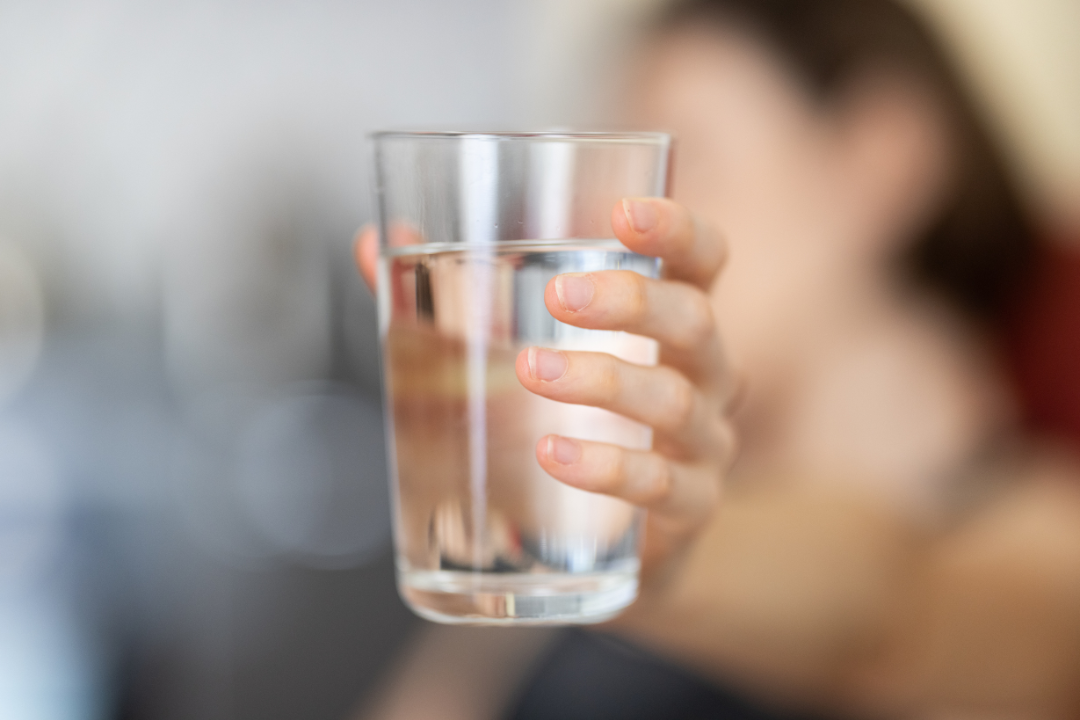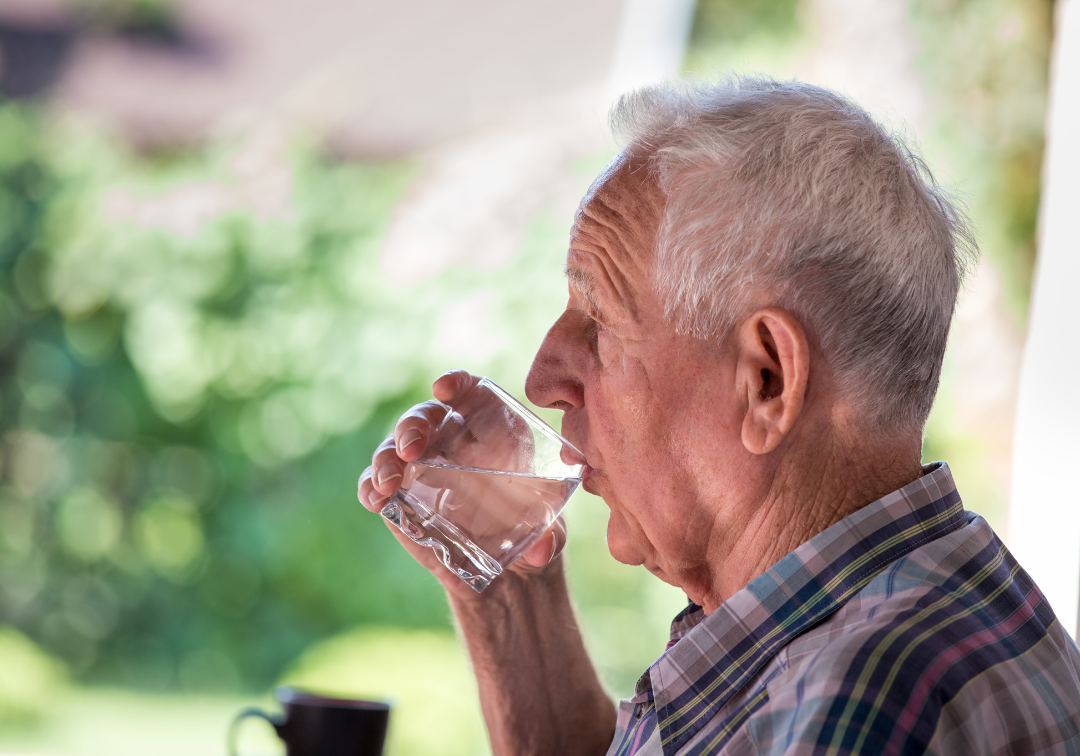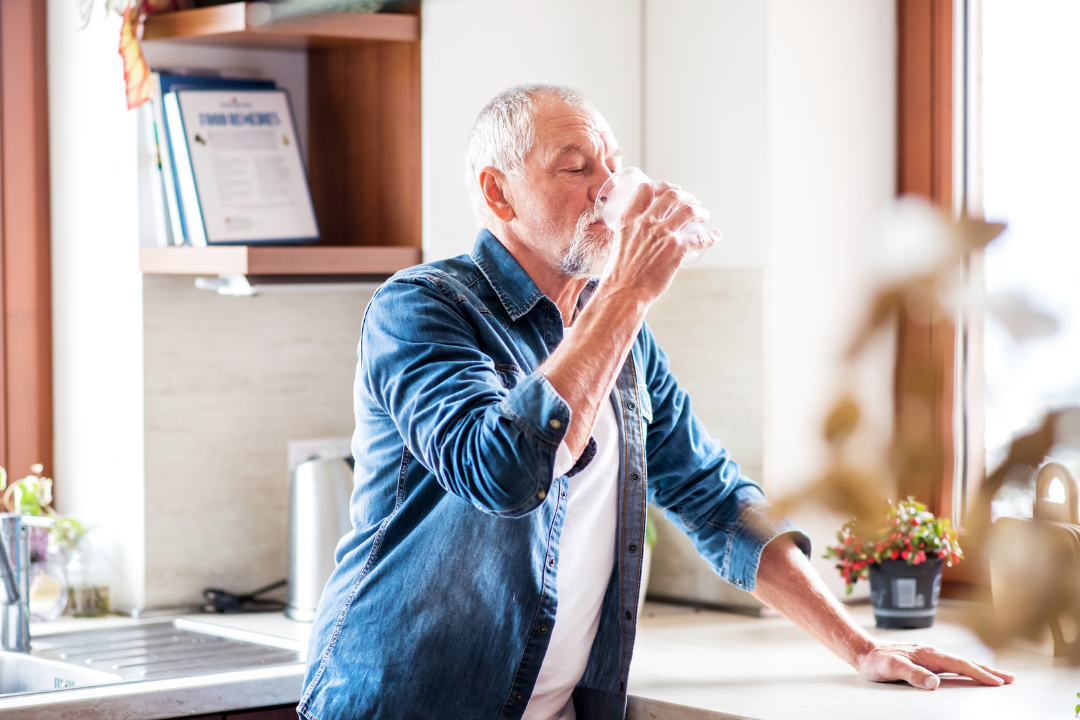As we age, maintaining proper hydration is crucial—but how we drink water matters just as much as how much we drink. To protect vascular health and support daily well-being, here are three habits elderly individuals should avoid when drinking water.

1. Don’t Drink a Large Amount of Water at Once
Many older adults tend to drink a lot of water in one sitting—especially after exercise or when feeling very thirsty. However, this habit can be harmful to blood vessels.
Drinking a large volume of water in a short time causes the body’s fluid levels to rise suddenly, which can rapidly increase blood volume and blood pressure. This sudden spike puts stress on the blood vessels and may accelerate vascular damage.
For those with heart disease or hypertension, this can be particularly dangerous, increasing the risk of blood vessel rupture or cardiac strain.
- Tip: Sip water gradually throughout the day rather than drinking large amounts all at once.

2. Don’t Wait Until You’re Thirsty
Thirst is actually a late sign of dehydration, especially in older adults, as the body’s ability to sense thirst declines with age. Waiting until you feel thirsty means your body is already lacking fluids.
Chronic dehydration can lead to increased blood viscosity (thicker blood), which burdens the cardiovascular system. Over time, this can raise the risk of high blood pressure, atherosclerosis, and other circulatory problems.
- Tip: Establish a regular hydration schedule—drink water at set times throughout the day, even if you’re not feeling thirsty.

3. Don’t Drink Water That’s Too Cold or Too Hot
Some elderly individuals prefer very cold or very hot water, but extreme temperatures can negatively affect blood vessels.
-
Cold water causes blood vessels to constrict suddenly, reducing blood flow and increasing vascular resistance.
-
Hot water causes blood vessels to dilate, and frequent temperature fluctuations can reduce vascular elasticity.
For seniors with hypertension or atherosclerosis, this can lead to vessel damage or even rupture.
Tip: Drink water that is lukewarm or room temperature to reduce stress on blood vessels.

Final Thoughts
Hydration is vital, but it’s important to drink wisely. By avoiding these three common mistakes, elderly individuals can better protect their heart and blood vessels, improve circulation, and enhance overall health and quality of life.

